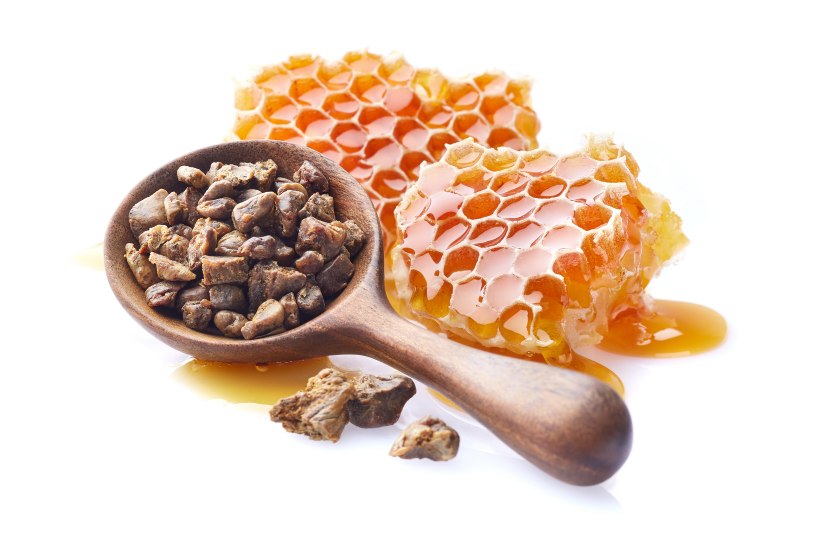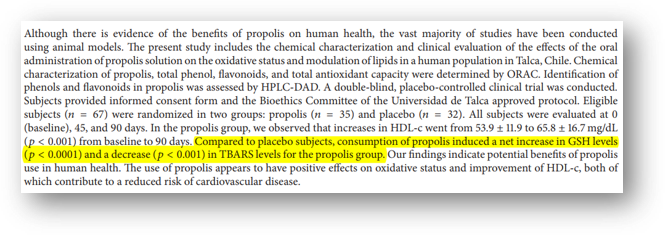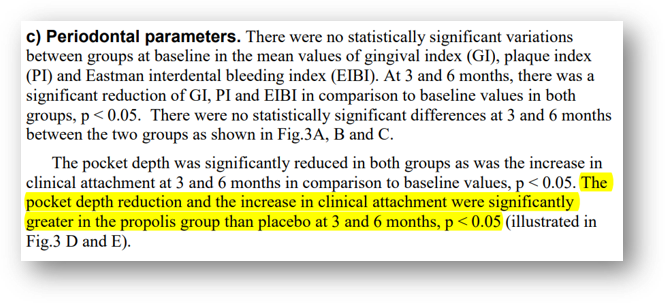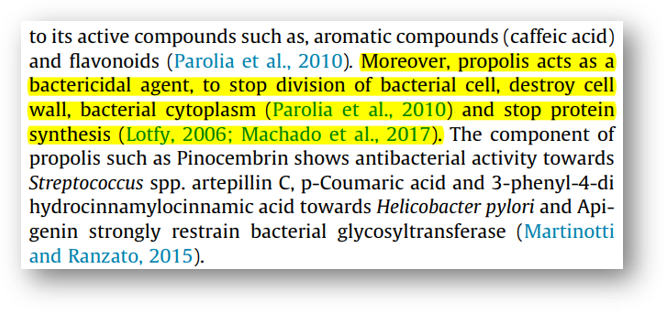Natural antimicrobial propolis made by bees
1. Antioxidant effect2
. Relieves
periodontitis symptoms3. Antimicrobial effect

Hello. I'm a pharmacist Jinny.
Did you know that bee hives are sterile? The reason for this is that propolis, which bees produce by collecting plant secretions and mixing their saliva with beeswax, is a natural antibiotic.
The antioxidant and antibacterial effects of propolis have been proven through various studies, and it is used in various forms such as toothpaste, oral spray, and candy as well as nutritional supplements. Vitamins, minerals, and flavonoids contained in propolis have been shown to contribute to the antioxidant and antibacterial effects of propolis. Now, let's take a closer look at the benefits of taking propolis through the paper.
Glutathione is a very important antioxidant in the human body that performs antioxidant action through oxidation-reduction reactions. The flavonoids and polyphenols in propolis increase glutathione levels and reduce the substances produced by oxidative reactions.
A 2017 study in Evidence-based complementary and alternative medicine actually showed that propolis increased glutathione and decreased oxidative reactors, thereby enhancing antioxidant capacity [1].

"Compared to placebo subjects, consumption of propolis induced a net increase in glutathione (GSH) levels and a decrease in oxidative reaction products (TBARS) in the propolis group."
When bacteria in the mouth cause inflammation to spread beyond the gums to the gum bone, it is called periodontitis. When periodontitis occurs, the teeth shake and the pain occurs when eating. The caffeic acid ester in propolis inhibits the activity of toll-like receptors4, which promote the secretion of inflammatory cytokanins, significantly slowing the proliferation of inflammation and helping tissue regeneration.
In this regard, a paper published in the Journal of Periodontology in 2016 reported that oral intake of propolis resulted in a decrease in periodontal pocket depth and an increase in clinical attachment, which improved periodontal parameters [2].

"Periodontal pocket depth reduction and increased clinical adhesion were significantly more significant than placebo in the propolis group at 3 and 6 months."
The flavonoids contained in propolis mentioned earlier have an antioxidant effect and have the effect of suppressing harmful bacteria, so when propolis is consumed, it can have an antibacterial effect.
A review paper published in the Saudi Journal of Biological Sciences in 2018 also reported the antimicrobial effects of propolis as follows [3]:

"Propolis also acts as a fungicide that prevents bacterial cell division, destroys cell walls, bacterial cytoplasm, and stops protein synthesis."
Today, we looked at the benefits of propolis in a paper. While propolis is an excellent antioxidant and antimicrobial substance, there are some things to be aware of when consuming it. First of all, propolis is mixed with pollen, so people with hay fever should be careful about consuming it. In addition, propolis slows blood clotting, so if you have a bleeding disorder or are planning surgery, it is recommended that you consult your doctor before taking it.
I hope you have a healthy day in body and mind. It was Jinny.
[1] Mujica, V., Orrego, R., Pérez, J., Romero, P., Ovalle, P., Zúñiga-Hernández, J., Arredondo, M., & Leiva, E. (2017). The Role of Propolis in Oxidative Stress and Lipid Metabolism: A Randomized Controlled Trial. Evidence-based complementary and alternative medicine : eCAM, 2017, 4272940.
[2] El-Sharkawy, H. M., Anees, M. M., & Van Dyke, T. E. (2016). Propolis Improves Periodontal Status and Glycemic Control in Patients With Type 2 Diabetes Mellitus and Chronic Periodontitis: A Randomized Clinical Trial. Journal of periodontology, 87(12), 1418–1426.
[3] Anjum, S. I., Ullah, A., Khan, K. A., Attaullah, M., Khan, H., Ali, H., Bashir, M. A., Tahir, M., Ansari, M. J., Ghramh, H. A., Adgaba, N., & Dash, C. K. (2019). Composition and functional properties of propolis (bee glue): A review. Saudi journal of biological sciences, 26(7), 1695–1703.


![[Propolis Benefits] 3 Benefits of Propolis, a Natural Antimicrobial Agent Made by Bees](http://esther-mall.com/cdn/shop/articles/4_3874eadd-89eb-4d29-bcf2-d1bd0651ceb9.jpg?v=1733986901&width=480)

![[Phosphatidylserine Benefits] Brain Health Function, 3 Benefits of Phosphatidylserine](http://esther-mall.com/cdn/shop/articles/5_096d2563-a797-4e70-9aba-47f258aee1f0.jpg?v=1733986852&width=480)
Comments (0)
There are no comments for this article. Be the first one to leave a message!